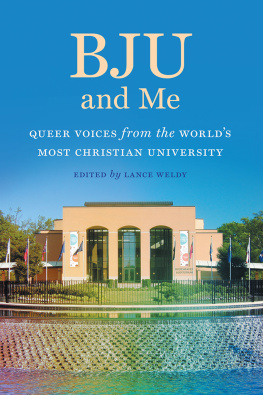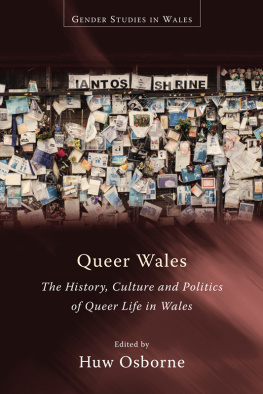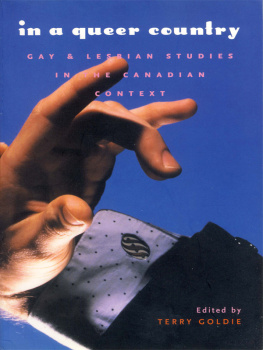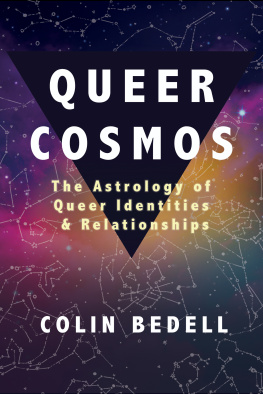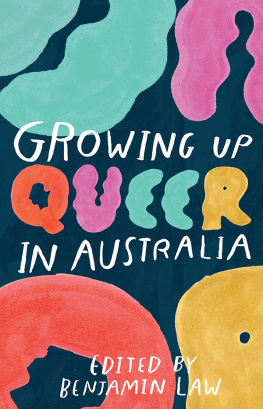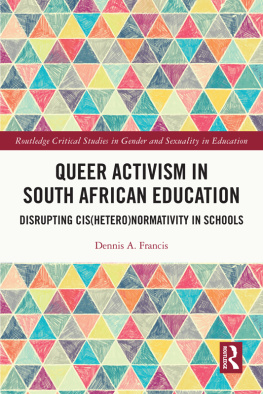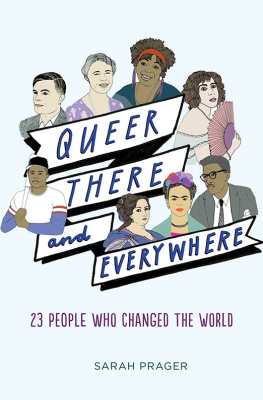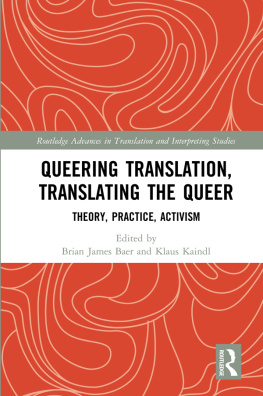Queer Campus Climate
Queer Campus Climate: An Ethnographic Fantasia is a visceral and provocative account of the lives of ten queer college men living in the Deep South. The book serves many goals. It is an emancipatory research document told in the raucous, fiery voices of these queer men whose narratives are presented free from the sanitizing impulses of traditional scholarship. It is a manifesto on postqualitative paradigms applied to a queer subject. It is a public history of the life and times of queer subjects living under an alt-right political assault. And it is an analysis of how a hostile campus climate impacts psychosocial development of marginalized students. Blurring the line between literature and research, Queer Campus Climate: An Ethnographic Fantasia contains a cast of characters (including a bear, a twink, and three drag queens) who dish on sex, gender performance, mental wellness, relationships, harassment, addiction, professional development, and politics. Their stories are told against a musical backdrop that includes selections from Puccini to Frank Ocean, which provides a multisensory experience unlike anything else in sociological research.
Benjamin Arnberg is a storyteller, researcher, philosopher, humorist, and clothes-horse who received his Ph.D. in Higher Education Administration at Auburn University, where he also teaches Social Foundations of Education. Queer Campus Climate: An Ethnographic Fantasia is his first book. He lives in Atlanta, GA, with his shoes.
Routledge Advances in Sociology
274 The Field of Water Policy
Power and Scarcity in the American Southwest
Franck Poupeau with Brian ONeill, Joan Cortinas Muoz, Murielle Coeurdray and Eliza Benites-Gambirazio
275 Impoverishment and Asylum
Social Policy as Slow Violence
Lucy Mayblin
276 Later Life
Exploring Aging through Literature
Barbara A. Misztal
277 On the Genealogy of Critique
Or How We Have Become Decadently Indignant
Diana Stypinska
278 Nostalgia Now
Cross-Disciplinary Perspectives on the Past in the Present
Edited by Michael Hviid Jacobsen
279 Magical Realist Sociologies of Belonging and Becoming
The Explorer
Rodanthi Tzanelli
280 Queer Campus Climate
An Ethnographic Fantasia
Benjamin Arnberg
For more information about this series, please visit: www.routledge.com/Routledge-Advances-in-Sociology/book-series/SE0511
Queer Campus Climate
An Ethnographic Fantasia
Benjamin Arnberg
First published 2020
by Routledge
2 Park Square, Milton Park, Abingdon, Oxon OX14 4RN
and by Routledge
52 Vanderbilt Avenue, New York, NY 10017
Routledge is an imprint of the Taylor & Francis Group, an informa business
2020 Benjamin Arnberg
The right of Benjamin Arnberg to be identified as author of this work has been asserted by him in accordance with sections 77 and 78 of the Copyright, Designs and Patents Act 1988.
All rights reserved. No part of this book may be reprinted or reproduced or utilised in any form or by any electronic, mechanical, or other means, now known or hereafter invented, including photocopying and recording, or in any information storage or retrieval system, without permission in writing from the publishers.
Trademark notice: Product or corporate names may be trademarks or registered trademarks, and are used only for identification and explanation without intent to infringe.
British Library Cataloguing-in-Publication Data
A catalogue record for this book is available from the British Library
Library of Congress Cataloging-in-Publication Data
A catalog record has been requested for this book
ISBN: 978-0-367-43243-0 (hbk)
ISBN: 978-1-003-00202-4 (ebk)
Typeset in Times New Roman
by codeMantra
I extend my gratitude to Dr. Hannah Baggett and Dr. Carey Andrzejewski, who each sat through numerous drafts as the narrative and the theories were tightened over a period of two years. Moreover, I thank each for encouraging me to see the potential in others, to focus on the bright spots in the queer narratives I gathered, and to follow my instincts (no matter how farfetched). I extend additional gratitude to Dr. Crystal Garcia and Dr. Laura Parson, who both read initial iterations and jumped on board as reviewers.
Many other faculty members devoted their time to teaching me how to be a researcher, theorist, teacher, and colleague. Dr. Paula Backscheider provided me with the feminist and queer theoretical frameworks that are the foundation(s) of this study. I constantly refer to her example, and I aspire to achieve a scholarly record as distinguished as hers. Dr. Alicia Carroll joined me as a reviewer of this project, in addition to suggesting numerous valuable queer texts that I may not otherwise have found. I thank Dr. Jonathan Bolton, Dr. Joyce de Vries, and Dr. Erich Nunn for being scholarly role models throughout my schooling (and for getting me into my schooling). In addition, I thank Cindy Sewell, my AP English teacher who told me I would be a writer someday, which put me on the path to make this book happen and to become an educator.
My friends Jaylin Goodwin and Drake Pooley both reviewed drafts and offered emotional support as I lived through some of the triumphs and traumas documented within this book. Jaylin offered methodological commentary and criticism (and wine). Drake offered copyediting and a this makes sense or this doesnt make sense perspective (and wine). Both leaned into my lunacy, which enabled the intellectual rigor and irreverence within the book to flourish. Both enabled me to become vocal and activist-oriented, despite pervasive institutional efforts to gaslight me or keep me silent.
Other friends provided intellectual and emotional support throughout this process, and I view them as silent contributors: Dr. Matt Ulmer, Dr. Emily Wilkins, Erin Hutchins, Callie Segars, Jackie Young, Evan Thomas, Anne Strickland, Nick Biland, Amanda Annonio, Kayla Warner, Kat Bowling, Stephen Caton, Chad DuBois, Haven Hart, and Ivy Sibley. Silent contributors, whom I have not met, but whose lives and work inspired me throughout the writing process are: Justice Ruth Bader Ginsburg, Jane Fonda, Samantha Power, Angela Davis, Gloria Steinem, Margaret Atwood, Tarana Burke, Mickalene Thomas, Glenda Jackson, Marina Abramovic, Sylvia Earle, Emma Gonzales, and Billy Porter.
Last, I thank the men who consented to have their lives thoroughly examined by me and who willingly offered the good and the bad for others to view so that (hopefully) the context that made the bad happen might evaporate over time.
Contrary to convention in educational research, this text follows The Chicago Manual of Style, 17th edition. I chose Chicago to preserve my intent that this research document be exclusively data. The body is void of analytical intervention; it privileges participant voice. I employ footnotes to provide scholarly commentary without disrupting the data structures. Readers may read the footnotes as scholarly live tweeting. I clarify terms, timelines, contexts, speakers, theories, and other factual information as necessary and on the page for which clarification may be necessary. if curated and narrated effectively, I provide occasional flourishes of analysis to provide readers with that which they often idolize: articulations of discrete interpretations and actionable results. Such an analytical flourish exists, in long form, in the Postlude.


